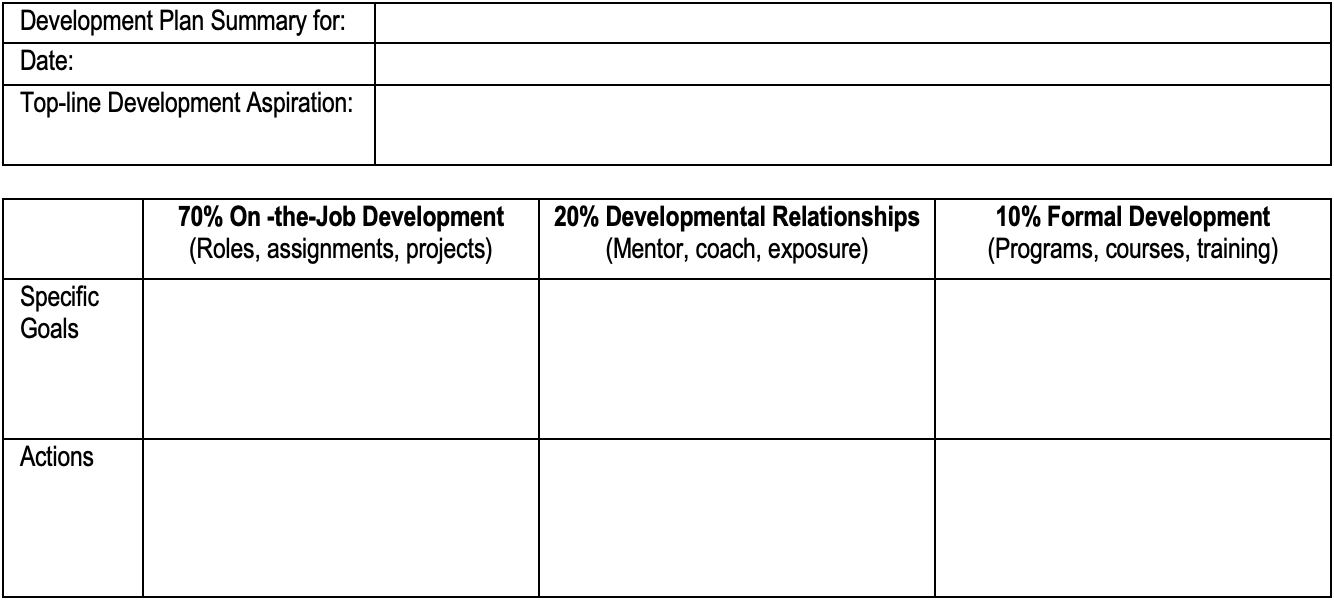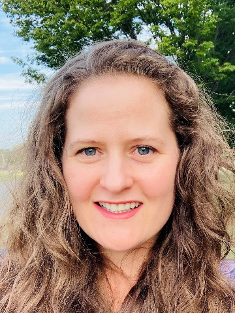The LCGC Blog: Your 70:20:10 Development Plan for Chromatographers
What comes to mind when you read 70:20:10? A mobile phase recipe?
In the beginning of the year, you should be thinking about 70:20:10 as a recipe for your career development (1). In my role as an R&D manager in the pharmaceutical industry, I have mentored many people regarding their personal development and received positive feedback. This blog post will cover why having a plan is important, what makes a good plan, and how to effectively use it. Throughout the article, I will also share personal examples for developing your career as a chromatographer.
Why is this important? Because your career will continue to develop whether you have a plan or not. Think of the benefit of having a clear direction to steer your personal growth. Your time is valuable, and every opportunity has a cost. Understanding your strengths and gaps in experiences will help you to use your time doing the work that best sets you up for success.
What makes a good plan? Whether you are in your first year of school or a seasoned professional, take some time to ask yourself, “Where do I want to be in the future?” This could be a 3-, 5-, or 10-year goal. Write your aspiration on the top line of your development plan. Some examples for different career paths and stages are provided in Table 1.
Table 1: An example of top-line development aspirations for different stages of your career.

These examples are generic, but you should add specificity. For students, decide what industry interests you the most and what size institution/company you might prefer working for. As a professional, decide what type of team or project you want to lead, then learn the required skills and valued experiences to reach that goal.
To define the 70:20:10 recipe, it represents proportions of the time you spend on career development. 70% is on-the-job development, 20% is developmental relationships, and 10% is formal development. The largest portion is what you spend most of your time doing. Successful plans align your personal development goals with the priorities of your employer. You are establishing your track record of completing assignments related to your top-line goal. For a career in chromatography, on-the-job development may be lab-based assignments, technical or organizational leadership roles, or projects. Two of my goals are to establish myself as an expert in therapeutic oligonucleotide development and to gain regulatory experience. Actions to aid me towards the first goal are to lead the analytical aspects for oligonucleotide product development, to establish chromatographic methods to measure potential critical quality attributes, and to automate several work packages. For the second goal, I will be reviewing regulatory files and responding to questions from health authorities. These goals are designed to develop my strengths and weaknesses. My strengths are experience with medicine development, chromatography, and automation. My area for growth is to apply my knowledge to a new field: therapeutic oligonucleotides.
If you are a new professor, your goal could be to recruit top-tier students for your research lab. An action could be to teach first- or second-year chemistry courses so you can identify those students. If you are a mid-career professor, your goal could be to establish yourself as a university leader. Another action could be to create a new program that provides continuing education degrees to employees in a nearby industry.
While 70% of developing is through doing, aim to spend 20% of your time forming developmental relationships so you can learn from others and build your reputation. Different styles of developmental relationships serve different purposes and have been previously summarized (2). A few types of developmental relationships will be highlighted here.
Attend any award symposium at a conference (for instance, the LCGC Lifetime Achievement and Emerging Leader in Chromatography Award Symposiums) and you will hear the recipient acknowledge their mentors. Think about who you admire and, frankly, who you don’t. Learn what skills and experiences made them. Mentorships can be personal relationships or a role model from afar. Some of my personal mentors are former managers and fellow graduates from my research lab. I also listen to the “Analytically Speaking” podcast to learn more about my role models in the field of chromatography.
The chromatography community has wonderful venues to form developmental relationships. Plan which conferences you wish to attend this year. No money for travel? No problem. Join your local separation science discussion group (3). If you are already tied into the community, consider further developing and enhancing your exposure by taking on a leadership or organizing role. Both traditional peer-reviewed journals and virtual social networks (such as LinkedIn) can be used to increase your exposure.
Lastly, let’s delve into formal development. As a student, 70% of your time may have been spent on formal development. As a professional, reserve 10% of your time for formal development, such as taking short courses and performing a literature review. Check out the short courses offered at conferences, look out for webinars, or review lessons on CHROMacademy (4). Last year, I attended Martin Gilar’s short course on “Chromatographic Methods of Analysis of Oligonucleotides, siRNA, and mRNA” at the Eastern Analytical Symposium, as well as several webinars presented by LCGC. Formal development should build your technical and professional skills. I also rely on LinkedIn Learning and Harvard Business Review for formal development courses on public speaking, influence, and leadership skills.
Now, you understand the main components of career development. Use the template in Figure 1, and follow this guide to write your personalized plan:
- Complete the top section of the form. Write your name, the date, and your Top-Line Development Aspiration.
- List your personal on-the-job development goals and associated action items.
- Pick one to three ideas to build developmental relationships. Write the first step needed to grow these relationships in the actions section.
- Select a technical and professional formal development goal. Assign actions towards this goal to complete one course or seminar per quarter.
Figure 1: Your Career Development Plan Template.

With your new career development plan, some things to remember include:
1. Your development plan is personal, but it’s not private. Use this as a tool to gather feedback from your trusted peers, mentors, coaches, and sponsors. Your managers and sponsors can better help you find opportunities to stretch and grow if they understand your ambition.
2. Your development plan is a living document. It can, and should, change over time as you progress in your career. Set up a reminder to review it every January and June at a minimum.
3. Your development plan is yours, not your employer’s. If you change jobs, take your development plan with you.
The field of chromatography is only as good as its chromatographers. You’ve designed plans for experiments, gathered results, and iterated until you found success. Apply these principles to design your personal career development plan. Write down your top-line development aspiration. Set goals to reach your ambition. Create aligned actions for 70% on-the-job development, 20% developmental relationships, and 10% formal development. Have a career with intention.
References
(1) Satell, G., Bhaduri, A., McLees, T. “Help Your Employees Develop the Skills They Really Need.” Harvard Business Review. 6 Oct 2023. https://hbr.org/2023/10/help-your-employees-develop-the-skills-they-really-need
(2) Gotian, R. “Why You Need a Role Model, Mentor, Coach And Sponsor.” Forbes. 4 Aug 2020. https://www.forbes.com/sites/ruthgotian/2020/08/04/why-you-need-a-role-model-mentor-coach-and-sponsor/?sh=3704008d7c48
(3) “Local Separations Science Discussion Groups.” American Chemical Society Division of Analytical Chemistry. https://acsanalytical.org/subdivisions/separations/scsc-localgroups/
(4) LCGC’s CHROMacademy. https://www.chromacademy.com/
About the Author
Kaitlin Grinias is currently a Team Leader in the Drug Substance and Product Analysis group at GSK. She is also an elected member of the GSK Fellows program based on her innovative and disruptive approaches to scientific problem solving. She received her PhD in Analytical Chemistry from the University of North Carolina at Chapel Hill under the advisement of Prof. James Jorgenson. She is currently the Treasurer of the Chromatography Forum of Delaware Valley and sits on the Board of Directors for the Enabling Technologies Consortium.

Silvia Radenkovic on Building Connections in the Scientific Community
April 11th 2025In the second part of our conversation with Silvia Radenkovic, she shares insights into her involvement in scientific organizations and offers advice for young scientists looking to engage more in scientific organizations.
Regulatory Deadlines and Supply Chain Challenges Take Center Stage in Nitrosamine Discussion
April 10th 2025During an LCGC International peer exchange, Aloka Srinivasan, Mayank Bhanti, and Amber Burch discussed the regulatory deadlines and supply chain challenges that come with nitrosamine analysis.
Silvia Radenkovic on Her Research and Passion for Scientific Collaboration
April 3rd 2025Silvia Radenkovic is a laboratory clinical biochemical genetics fellow at UMC Utrecht, the Netherlands and a member of Females in Mass Spectrometry (FeMS). She is currently doing a clinical fellowship where she is involved in diagnosing and helping treat patients with inborn metabolic diseases (IMD). Her research focuses on IMD such as congenital disorders of glycosylation (CDG), omics techniques such as tracer metabolomics, and different disease models.




